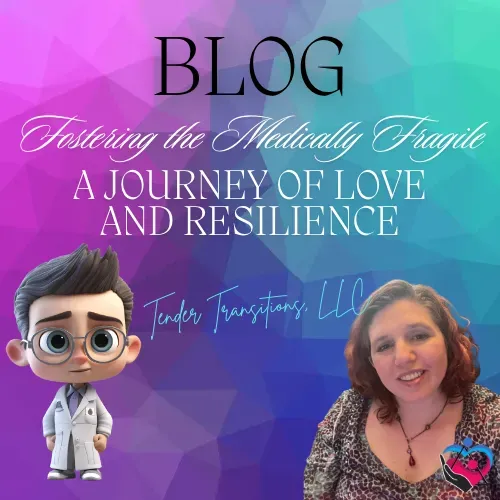What to Expect During a Potential Foster Parent Home Study
Embarking on the journey to becoming a foster parent is both exciting and challenging. One of the critical steps in this process is the home study, a comprehensive evaluation that assesses your readiness and suitability to provide a safe and nurturing environment for a foster child. Understanding what to expect during a potential foster parent home study can help alleviate any anxieties and ensure you are well-prepared for this important assessment. This blog post will guide you through the key aspects of the home study process, including preparation, the evaluation itself, and follow-up steps.
Preparation for the Home Study
Gather Required Documentation:
Before the home study begins, you'll need to gather and submit various documents. This typically includes identification documents (such as driver’s licenses and Social Security cards), proof of income, tax returns, and medical records for all household members. You may also need to provide references from friends, family, and employers who can speak to your character and suitability as a foster parent.
Complete Background Checks:
Background checks are a standard part of the home study process. These checks include criminal history, child abuse and neglect records, and sex offender registries. Be prepared to provide consent for these checks and to disclose any relevant information that may arise. Addressing any issues transparently will help demonstrate your commitment to creating a safe environment for foster children.
Prepare Your Home:
Ensure that your home is ready for the home study visit. This means addressing any safety concerns, such as securing heavy furniture, covering electrical outlets, and ensuring that all hazardous substances are stored safely. Make sure that the child’s living areas, including their bedroom, are clean, organized, and appropriately child-proofed.
The Home Study Process
Initial Meeting:
The home study process typically begins with an initial meeting between you and the home study worker or social worker. This meeting is an opportunity for you to ask questions, discuss your motivations for fostering, and understand the home study process in detail. The worker will explain the purpose of the home study, what will be evaluated, and how the information will be used.
Home Visit:
One of the key components of the home study is the home visit. During this visit, the home study worker will tour your home to assess its safety, cleanliness, and suitability for a foster child. They will also evaluate your ability to provide a supportive environment, including checking sleeping arrangements, safety measures, and general living conditions.
Interviews:
The home study process involves interviews with all household members. The social worker will ask questions about your background, parenting philosophy, and experiences with children. They may also explore topics such as your understanding of the challenges of foster care, your support systems, and your ability to manage the demands of fostering.
Personal History and Background:
Expect to discuss your personal history, including your upbringing, education, work experience, and any previous experience with children. The social worker will also explore your relationships and support systems, as well as any potential challenges or concerns that might impact your ability to foster.
Assessment of Parenting Skills:
The home study will assess your parenting skills and ability to meet the needs of a foster child. This includes evaluating your approach to discipline, communication, and your understanding of child development and trauma. The social worker may also provide scenarios or questions to gauge how you would handle various situations.
Evaluation of Support Systems:
The home study worker will consider the support systems available to you, including family, friends, and community resources. They will assess how these supports contribute to your ability to provide a stable and nurturing environment for a foster child. Additionally, the worker will review any relevant training or qualifications you have related to child care and foster parenting.
Follow-Up and Next Steps
Review and Recommendations:
After the home study visit and interviews, the social worker will compile a detailed report that includes their observations, assessments, and recommendations. This report is used to determine your suitability as a foster parent and may include suggestions for further training or adjustments to your home environment.
Addressing Concerns:
If the home study identifies any concerns or areas for improvement, you will have the opportunity to address them. This might involve making changes to your home, completing additional training, or providing further information. The goal is to ensure that you are fully prepared to meet the needs of a foster child and provide a safe and supportive environment.
Approval or Denial:
Once the home study report is finalized, you will receive a decision regarding your application to become a foster parent. If approved, you will be officially licensed or certified to foster, and you can begin the process of being matched with a child. If your application is denied, you will receive feedback on the reasons and may have the opportunity to address any issues before reapplying.
Continued Support:
The home study process is just one part of your journey as a foster parent. Once approved, you will receive ongoing support and training to help you navigate the challenges of fostering. Stay connected with your agency, attend additional training sessions, and seek support from other foster parents to continue developing your skills and knowledge.
Conclusion
The home study is a critical step in the foster care process, designed to ensure that prospective foster parents are prepared to provide a safe and nurturing environment for children in need. By understanding what to expect during the home study, you can approach the process with confidence and clarity. Preparation, transparency, and a willingness to address any concerns will help you demonstrate your readiness to foster and support the well-being of children who require temporary care. The goal is to create a positive and supportive environment that will make a meaningful difference in the lives of foster children and contribute to their overall stability and development.

